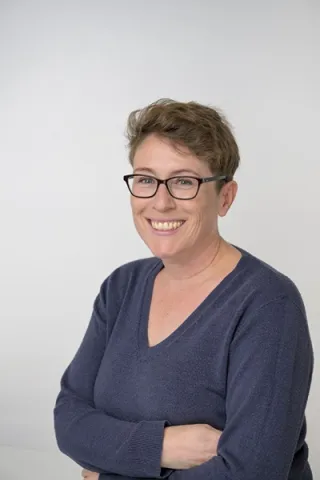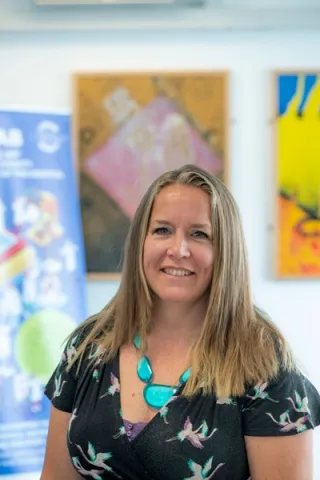Project overview
A major cause of climate change is greenhouse gas emissions -the food system contributes ~¼ of these emissions. Changing what we eat and how it’s grown could therefore reduce climate change. Adolescents are a powerful force for change - as seen in the emergence of young activists like Greta Thunberg.
In our teenager-led project, the science linking environment to plant growth will be used to engage young people in the potential benefit of plant-based sustainable diets to the global climate, their health and that of their future families, and to support them in developing voices to influence people and policy.
• As the climate change emergency intensifies so does the consciousness of the part played in this by our food system and greenhouse gas emissions. Food in general, nutrition, is linked in many people’s minds to health. This project was set up to put these ideas together - to engage young people with the scientific ideas linking climate change, food choices, growing edible plants and our health across the lifecourse. Helping young people to connect these ideas is important as they make healthy choices and form habits of their own, but also for their families and the next generation.
• The project team united expertise in education, developmental physiology and plant biology with key project partnerships between the applicants, LifeLab (Kath Woods-Townsend), and external partners from The Food Foundation and Veg Power (Jo Ralling) and Rethink Food (Nathan Atikinson).
• We ran a series of successful events in Dec 2019-Feb 2020 with a kick off session at Building 85 with climate-plant-health linkage discussions (image 1 below), visits to greenhouses and food, school visits by our team to support plants experiments and the in-person escape room activity, and supporting them in devising questions for a panel of experts at a NIHR workshop which took place at SGH. COVID halted work, and further face-to-face interaction was not possible so our vision of the young people coming to SOTSEF to help engage other members of the public with these ideas, using the same escape room activity, was unrealised.
• However, for digital SOTSEF we hosted a live CULTIVATE! webinar and digitised the Escape Room. Creation of these resources was unforeseen, but well-received and we used them again for Digital SOTSEF 2021. [links to resources on http://www.sotsef.co.uk/all_activities/?zone=humans_and_health]
• As schools started to return to the classroom, we linked with the Aspire Community Trust in Southampton to adapt Cultivate! to year 6 and 7 students who had suffered with poor transition to secondary school in the pandemic or who were about to make that transition. The Aspire Community Trust includes 9 schools in Southampton; 1 secondary (Cantell Secondary School), 7 primary phase schools and 1 special educational needs school. We worked with 1 class of year 7 students at Cantell secondary school, 1 class of year 6 students at Mansbridge Primary School and 3 classes of year 6 students at Bassett Green Primary School. We delivered a growing tower and seedlings (lettuce, cucumber, tomatoes, peppers, nasturtiums (edible), chives and mint) to each school, along with a module plan of 6 lessons covering:
o growing produce (how the growing tower works – reflecting on ecological benefits and sustainable development goals; what plants/produce need to grow and how this might be impacted by climate change and how that is reflected in what humans need to grow)
o reflecting on how food choices will change in the transition to secondary school (thinking about route to school, school meals, increasing independence)
o Planning sustainable meals (considering where food comes from – is buying local a good idea? What will be the impact of climate change on our ability to source food?)
o Holding a celebration meal using produce the children have grown.
• In total, ~150 year 6 and 7 students participated in the growing towers classroom module.
• For the Year 7 students at Cantell, we also delivered the Cultivate! Webinar to all year 7 students (~300 students) during one of their geography lessons.
• Evaluation during the first face to face part of the project was damaged by COVID. The enjoyment and engagement that we witnessed in the group of students was palpable and the fact that they participated actively in the subsequent events (e.g. Question Time, see below) showed they had connected with some of the key issues.
• We managed to employ a range of evaluation techniques in the other ‘digital’ parts of the project. Number of hits on nearpod (103), asking for questions during webinars and writing thoughts about ‘climate change’, ‘what plants do for us’ and final pledges around the whole subject on whiteboards during webinars.
• For the final webinar with Cantell School, the teachers facilitated feedback from students using post-it notes.
In our teenager-led project, the science linking environment to plant growth will be used to engage young people in the potential benefit of plant-based sustainable diets to the global climate, their health and that of their future families, and to support them in developing voices to influence people and policy.
• As the climate change emergency intensifies so does the consciousness of the part played in this by our food system and greenhouse gas emissions. Food in general, nutrition, is linked in many people’s minds to health. This project was set up to put these ideas together - to engage young people with the scientific ideas linking climate change, food choices, growing edible plants and our health across the lifecourse. Helping young people to connect these ideas is important as they make healthy choices and form habits of their own, but also for their families and the next generation.
• The project team united expertise in education, developmental physiology and plant biology with key project partnerships between the applicants, LifeLab (Kath Woods-Townsend), and external partners from The Food Foundation and Veg Power (Jo Ralling) and Rethink Food (Nathan Atikinson).
• We ran a series of successful events in Dec 2019-Feb 2020 with a kick off session at Building 85 with climate-plant-health linkage discussions (image 1 below), visits to greenhouses and food, school visits by our team to support plants experiments and the in-person escape room activity, and supporting them in devising questions for a panel of experts at a NIHR workshop which took place at SGH. COVID halted work, and further face-to-face interaction was not possible so our vision of the young people coming to SOTSEF to help engage other members of the public with these ideas, using the same escape room activity, was unrealised.
• However, for digital SOTSEF we hosted a live CULTIVATE! webinar and digitised the Escape Room. Creation of these resources was unforeseen, but well-received and we used them again for Digital SOTSEF 2021. [links to resources on http://www.sotsef.co.uk/all_activities/?zone=humans_and_health]
• As schools started to return to the classroom, we linked with the Aspire Community Trust in Southampton to adapt Cultivate! to year 6 and 7 students who had suffered with poor transition to secondary school in the pandemic or who were about to make that transition. The Aspire Community Trust includes 9 schools in Southampton; 1 secondary (Cantell Secondary School), 7 primary phase schools and 1 special educational needs school. We worked with 1 class of year 7 students at Cantell secondary school, 1 class of year 6 students at Mansbridge Primary School and 3 classes of year 6 students at Bassett Green Primary School. We delivered a growing tower and seedlings (lettuce, cucumber, tomatoes, peppers, nasturtiums (edible), chives and mint) to each school, along with a module plan of 6 lessons covering:
o growing produce (how the growing tower works – reflecting on ecological benefits and sustainable development goals; what plants/produce need to grow and how this might be impacted by climate change and how that is reflected in what humans need to grow)
o reflecting on how food choices will change in the transition to secondary school (thinking about route to school, school meals, increasing independence)
o Planning sustainable meals (considering where food comes from – is buying local a good idea? What will be the impact of climate change on our ability to source food?)
o Holding a celebration meal using produce the children have grown.
• In total, ~150 year 6 and 7 students participated in the growing towers classroom module.
• For the Year 7 students at Cantell, we also delivered the Cultivate! Webinar to all year 7 students (~300 students) during one of their geography lessons.
• Evaluation during the first face to face part of the project was damaged by COVID. The enjoyment and engagement that we witnessed in the group of students was palpable and the fact that they participated actively in the subsequent events (e.g. Question Time, see below) showed they had connected with some of the key issues.
• We managed to employ a range of evaluation techniques in the other ‘digital’ parts of the project. Number of hits on nearpod (103), asking for questions during webinars and writing thoughts about ‘climate change’, ‘what plants do for us’ and final pledges around the whole subject on whiteboards during webinars.
• For the final webinar with Cantell School, the teachers facilitated feedback from students using post-it notes.


